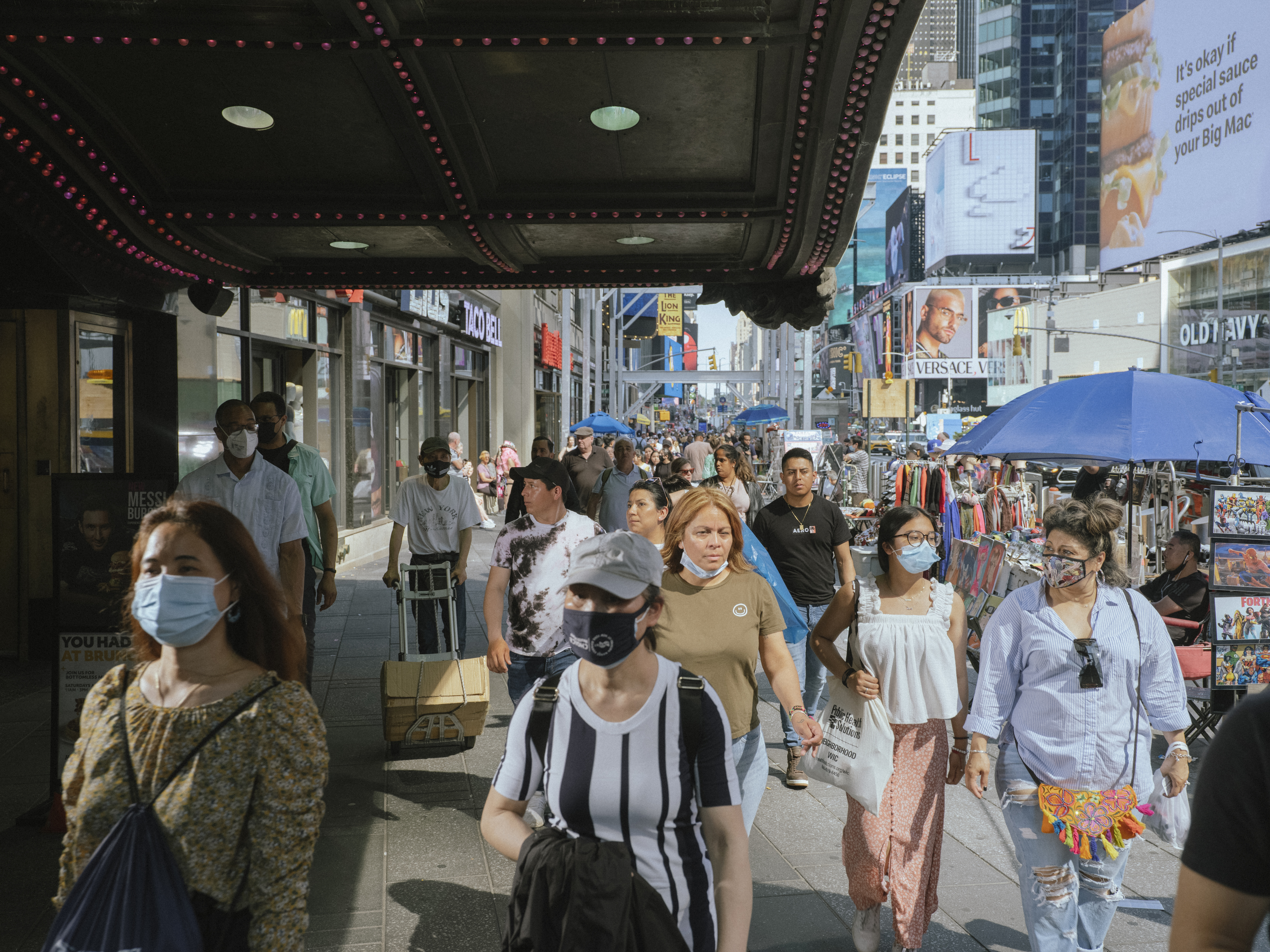The great COVID disconnect
BA.5 is on the rampage, but most Americans believe the pandemic is over


A free daily email with the biggest news stories of the day – and the best features from TheWeek.com
You are now subscribed
Your newsletter sign-up was successful
The damn thing finally got me. After two and a half years of dodging the coronavirus, my wife and I gambled on an overseas trip and came back with COVID. We were probably infected at one of the airports, where we were trapped for hours in closely packed throngs of mostly unmasked people, who were sneezing, coughing, and braying with no concern about spreading infection. As we wave the white flag of de facto surrender, the BA.5 variant is surging, with known new infections up 20 percent in two weeks, 40,000 hospitalized, and deaths creeping back up to 3,000 a week. When immersed in aerosolized clouds of this hyper-infectious variant for prolonged periods, even masked people are at high risk. Despite my two boosters and excellent overall health, COVID made me sicker than I'd been for decades, with a fever, massive congestion, crushing fatigue, and a body that ached like I'd been beaten with a baseball bat. I'm still hacking after two weeks. It's no cold.
We've entered a surreal stage of the pandemic: Most people have such understandable COVID fatigue they've decided it must be over. Even if people get infected, they tell themselves, it'll be "mild." Wishful thinking. COVID, for many, is no mere respiratory disease; SARS-CoV-2 can maraud through the body, damaging the heart, brain, and multiple organs. It can wreak havoc on the immune system. Multiple infections, studies show, can double or triple the risk of severe illness and long COVID. With millions of ongoing infections, the virus keeps mutating at breakneck speed to elude prior immunity from illness and vaccination. "Living with the virus" may mean getting COVID three or more times a year, amid a constant backdrop of widespread illness. British immunologist Danny Altmann compares our COVID reality to "being trapped on a roller coaster in a horror film." We might prefer to shut our eyes and cover our ears, but this movie is not over.
This is the editor's letter in the current issue of The Week magazine.
The Week
Escape your echo chamber. Get the facts behind the news, plus analysis from multiple perspectives.

Sign up for The Week's Free Newsletters
From our morning news briefing to a weekly Good News Newsletter, get the best of The Week delivered directly to your inbox.
From our morning news briefing to a weekly Good News Newsletter, get the best of The Week delivered directly to your inbox.
A free daily email with the biggest news stories of the day – and the best features from TheWeek.com
William Falk is editor-in-chief of The Week, and has held that role since the magazine's first issue in 2001. He has previously been a reporter, columnist, and editor at the Gannett Westchester Newspapers and at Newsday, where he was part of two reporting teams that won Pulitzer Prizes.
-
 What to know before filing your own taxes for the first time
What to know before filing your own taxes for the first timethe explainer Tackle this financial milestone with confidence
-
 The biggest box office flops of the 21st century
The biggest box office flops of the 21st centuryin depth Unnecessary remakes and turgid, expensive CGI-fests highlight this list of these most notorious box-office losers
-
 What are the best investments for beginners?
What are the best investments for beginners?The Explainer Stocks and ETFs and bonds, oh my
-
 A Nipah virus outbreak in India has brought back Covid-era surveillance
A Nipah virus outbreak in India has brought back Covid-era surveillanceUnder the radar The disease can spread through animals and humans
-
 Covid-19 mRNA vaccines could help fight cancer
Covid-19 mRNA vaccines could help fight cancerUnder the radar They boost the immune system
-
 The new Stratus Covid strain – and why it’s on the rise
The new Stratus Covid strain – and why it’s on the riseThe Explainer ‘No evidence’ new variant is more dangerous or that vaccines won’t work against it, say UK health experts
-
 RFK Jr. vaccine panel advises restricting MMRV shot
RFK Jr. vaccine panel advises restricting MMRV shotSpeed Read The committee voted to restrict access to a childhood vaccine against chickenpox
-
 RFK Jr. scraps Covid shots for pregnant women, kids
RFK Jr. scraps Covid shots for pregnant women, kidsSpeed Read The Health Secretary announced a policy change without informing CDC officials
-
 New FDA chiefs limit Covid-19 shots to elderly, sick
New FDA chiefs limit Covid-19 shots to elderly, sickspeed read The FDA set stricter approval standards for booster shots
-
 RFK Jr.: A new plan for sabotaging vaccines
RFK Jr.: A new plan for sabotaging vaccinesFeature The Health Secretary announced changes to vaccine testing and asks Americans to 'do your own research'
-
 Five years on: How Covid changed everything
Five years on: How Covid changed everythingFeature We seem to have collectively forgotten Covid’s horrors, but they have completely reshaped politics
